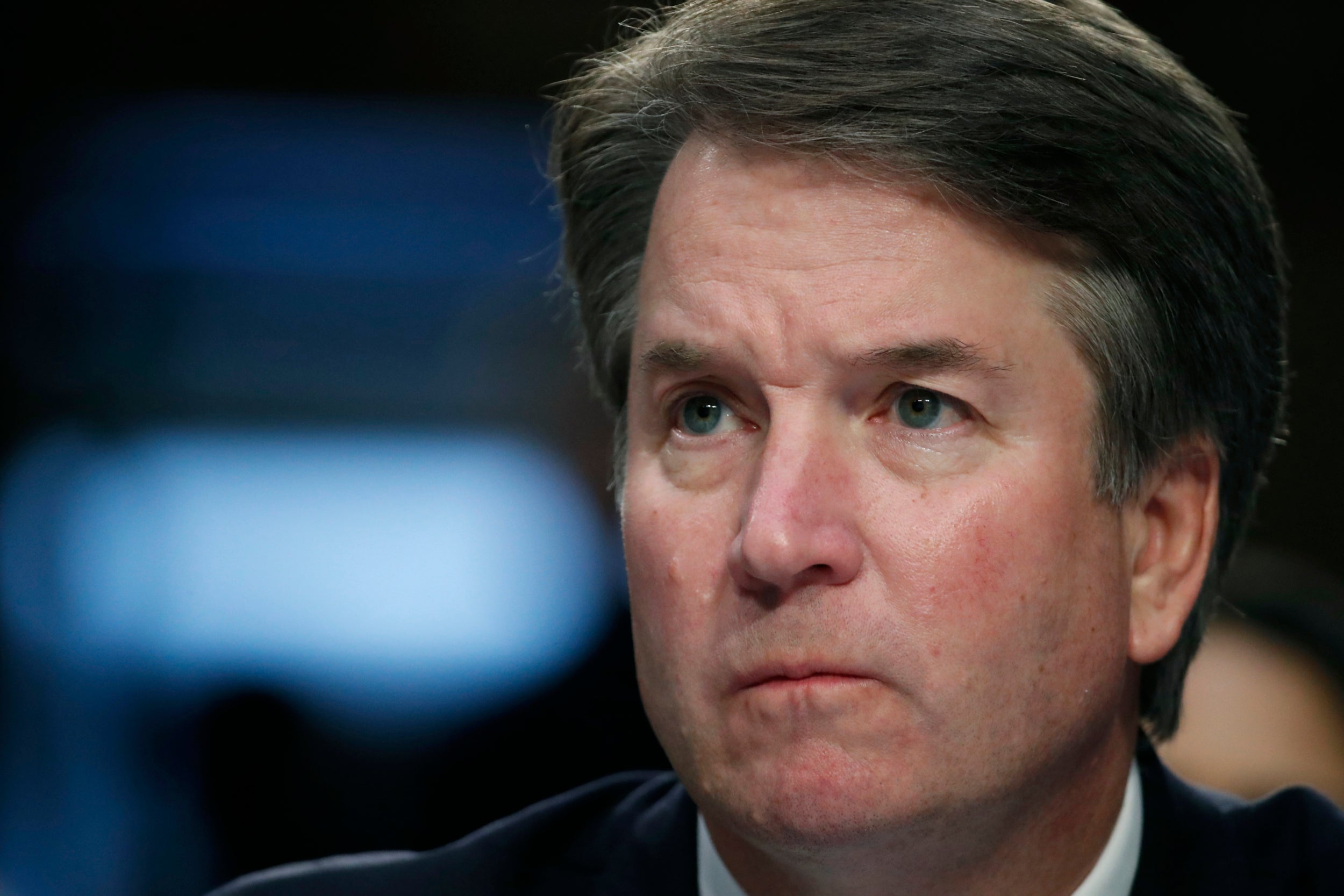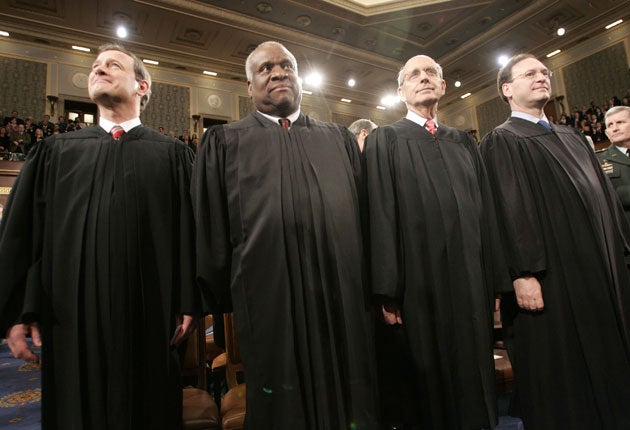This 1991 advert condemning racism and sexism in the US is still apt in the age of Christine Blasey Ford
The Kavanaugh case draws parallels to condemnation of racism and sexism seen 27 years ago when 1600 African American women rose to demand justice for Professor Anita Hill
On 17 November 1991, more than 1,600 African American women, outraged by the Senate's mistreatment of Anita Hill, took out an ad in the New York Times with the headline: "African American Women in Defense of Ourselves."
The ad, which criticised the appointment of Clarence Thomas to the Supreme Court, also ran in seven black newspapers across the country. It was a demand to be heard, inspired by three black female scholars - Barbara Ransby, Deborah King and Elsa Barkley Brown, who were appalled by the all-male Senate committee that disrespected Hill and dismissed her sexual harassment allegations against Thomas before confirming him.
"We are particularly outraged by the racist and sexist treatment of Professor Anita Hill, an African American woman who was maligned and castigated for daring to speak publicly of her own experience of sexual abuse," the ad said. "The malicious defamation of Professor Hill insulted all women of African descent and sent a dangerous message to any woman who might contemplate a sexual harassment complaint."
Twenty-seven years later, the ad seems prescient as hundreds of women have written letters in support of Christine Blasey Ford, a California research psychologist who has accused Supreme Court nominee Brett Kavanaugh of sexually assaulting her in the early 1980s when both were high school students in the D.C. area.
The disclosure has thrown up a roadblock in Kavanaugh's confirmation process before the Senate.

Ransby, one of the three scholars who wrote the 1991 ad, said she believes it is imperative that Ford be respectfully heard. The same way, she said, it was imperative in 1991 for Hill to be respectfully heard.
"I think it's important she felt she could come forward now," said Ransby, a professor of history, African American studies, and gender and women's studies at the University of Illinois at Chicago. "Even if it doesn't get serious attention it should, I think it is still a victory it was put in the public record."
In 1991, the stakes were high as Hill reluctantly took her seat in a crowded Senate hearing room.
"It would have been more comfortable to remain silent," Hill told the committee. "I took no initiative to inform anyone. But when I was asked by a representative of this committee to report my experience, I felt that I had to tell the truth. I could not keep silent."
Women watched with astonishment as Hill sat at a witness table and answered the most horrific and embarrassing questions from male senators.
"Committee Republicans tried with increasing force as the hearing wore on to suggest that Hill might have reason for concocting a 'fantasy' about Thomas," the Los Angeles Times reported in an article under the headline: "Testimony Leaves One Question: Who's Lying?: Dilemma: Statements are so irreconcilable that nomination can survive only if Hill's credibility doesn't."
"Are you a scorned woman?" Sen. Howell Heflin, D-Ala., asked. "Are you a zealoting civil rights believer? . . . Do you have a martyr complex? . . . Are you interested in writing a book?"
"I am not given to fantasy," Hill replied, coolly. ". . . I can only tell you what happened."

Ransby remembers watching the hearing unfold into a spectacle.
"[Senators] Arlen Specter and Orrin Hatch accused her of making it up. They could not fathom this woman would be a victim of sexual harassment," Ransby said.
She added: "They played into the stereotypes of the 'un-rapeable' black woman and ... the tough black woman that nothing flaps her. The other is that black women are sexually insatiable, which goes back to slavery. All of that was on display - consciously and subconsciously."
Ransby and her fellow scholars did not know Hill personally, but they had lived her story.
"We were all Anita Hill at that moment," Ransby said. "All of us could identify with her experience. Most of us had experienced some form of harassment and most of us had been quiet about it. You take it. You suffer it. And endure it. We found her story perfectly believable."
In the pre-internet era, Ransby, King and Brown put out a call to action to other black scholars and feminists concerned about the treatment of Hill and lack of black women's voices in the public debate.
"Now we tweet or text," Ransby said. In 1991, "we were all on the phone with each other. 'Can you believe what Orrin Hatch said?' Part of the language of the ad and the statement came out of conversations Deborah and I had with many women."
They began to call people they knew. They set up a 1-800 number, "such an antiquated organising technique," Ransby said. They asked people to donate to the cover the cost of the ad. "Elsa set up a bank account. Someone had a husband who worked at an ad agency in New York. We collected lots and lots of small checks. And lots of names." In a matter of weeks, they raised $50,000.
"We wrestled with whether an ad was the best tactic," Ransby said. "Some people said, 'You gave $50,000 to the New York Times.' We felt like the mainstream media had not covered the voice of black women."
King wrote the first draft; Brown and Ransby edited. "It was a collective effort," Ransby said. The statement, which was later published in several anthologies, became legend.
The women concluded the statement with a promise: "We pledge ourselves to continue to speak out in defence of one another, in defence of the African American community and against those who are hostile to social justice no matter what colour they are. No one will speak for us but ourselves."
The Washington Post
Join our commenting forum
Join thought-provoking conversations, follow other Independent readers and see their replies
Comments